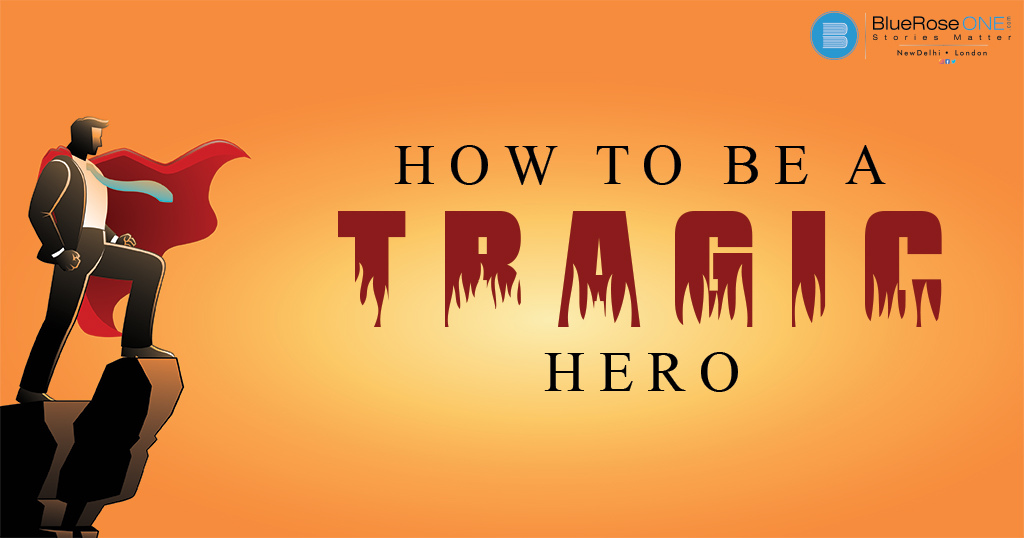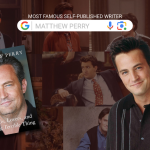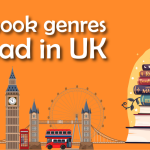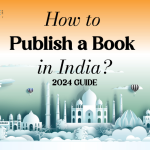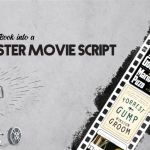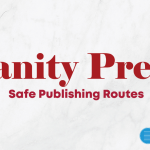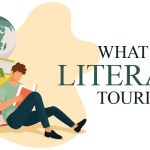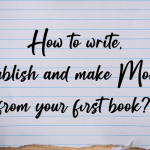The concept of the tragic hero has been a fundamental element in literature, captivating audiences with its exploration of human flaws and the consequences of unchecked ambition or hubris. From ancient Greek dramas to modern literature, the tragic hero remains a compelling archetype. In this blog, we will delve into the definition, evolution, and common traits of a tragic hero, supported by illuminating examples from both classic and contemporary works.
Defining the Tragic Hero:
A tragic hero is a central figure in a literary work, often a protagonist, whose journey ends in tragedy due to a combination of personal traits and external circumstances. This archetype is deeply rooted in Aristotle’s “Poetics,” where he outlined key characteristics that define a tragic hero. The first element is the hero’s nobility, suggesting that the character holds a high social status or possesses admirable qualities. This nobility makes the hero’s fall more impactful and relatable to the audience.
The tragic flaw, known as hamartia, is the second crucial component. It represents a fundamental mistake or character defect in the hero that contributes to their downfall. This flaw could be hubris, excessive pride, or a lack of self-awareness. The hero’s actions, guided by this flaw, set in motion a series of events leading to their tragic end.
Read: What are Figurative Language Examples: Everything to Know about Figurative Language
The third element is anagnorisis, which refers to the hero’s realisation of their mistakes. This self-awareness often comes too late and serves as a moment of profound insight, heightening the tragic impact of their fate.
Aristotle believed that the experience of witnessing a tragic hero’s downfall evokes catharsis, a purging of emotions, and a sense of emotional release for the audience. This cathartic effect is a crucial aspect of the tragic genre, providing a transformative experience for the spectators.
Evolution of the Tragic Hero:
The concept of the tragic hero originated in ancient Greek tragedies, where characters like Oedipus in Sophocles’ plays embodied the archetype. These early tragic heroes adhered to Aristotle’s principles of nobility, hamartia, and anagnorisis. Oedipus, for instance, was a noble king whose tragic flaw, his ignorance of his true identity, led to his inevitable downfall.
As literary traditions evolved, so did the tragic hero. In Shakespearean tragedies, characters like Macbeth and Othello became central figures. Shakespeare introduced more complex and psychologically nuanced protagonists. Macbeth’s ambition and Othello’s jealousy became their fatal flaws, leading to their tragic fates. The nobility of these characters was often intertwined with their flaws, creating a more intricate portrayal of the human condition.
In modern literature, the concept of the tragic hero has expanded to include antiheroes who deviate from traditional notions of nobility. Characters like Willy Loman in “Death of a Salesman” challenge societal expectations but still grapple with internal conflicts. Willy’s tragic flaw lies in his distorted perception of success and his pursuit of the American Dream. The evolving nature of the tragic hero reflects changing cultural and societal values, allowing for a broader and more diverse exploration of tragic narratives.
Common Traits of a Tragic Hero:
- 1. Nobility or High Status:
Tragic heroes often hail from positions of prominence or nobility, intensifying the impact of their downfall. Take Macbeth, the titular character in Shakespeare’s play. Starting as a respected general, Macbeth’s ascent to the throne brings him high status. However, his unchecked ambition leads him to commit regicide, triggering a chain of events that ultimately results in his tragic demise. The magnitude of Macbeth’s fall is amplified by his initial elevated status, which resonates deeply with the audience. - 2. Tragic Flaw (Hamartia):
The tragic flaw is a central element in the hero’s narrative, often stemming from their virtues. In the case of Oedipus from Sophocles’ “Oedipus Rex,” his relentless pursuit of truth and justice, commendable virtues, transforms into a tragic flaw. His unwavering pride blinds him to the reality of his actions, unknowingly fulfilling the prophecy that he sought to evade. Oedipus’s hamartia, woven into his virtuous traits, contributes significantly to his tragic downfall. - 3. Reversal of Fortune (Peripeteia):
Peripeteia marks the turning point where the hero’s fortune undergoes a drastic transformation. Consider the character of Willy Loman in Arthur Miller’s “Death of a Salesman.” Willy’s reversal of fortune occurs when his perception of the American Dream shatters, leading to financial ruin and a fractured family. The stark shift from his aspirations to the harsh reality of his situation sets the stage for Willy’s tragic journey. - 4. Recognition of Flaws (Anagnorisis):
Anagnorisis is the moment of self-realisation where the tragic hero acknowledges their fatal flaw. In “Hamlet,” Shakespeare’s eponymous character experiences anagnorisis when he discovers the consequences of his indecisiveness and internal conflicts. Hamlet’s realisation of the role he played in the tragic events unfolds as he faces mortality and the fallout of his actions, adding depth to his character. - 5. Catharsis:
Aristotle’s concept of catharsis aims for emotional purging in the audience through the hero’s suffering. Jay Gatsby in F. Scott Fitzgerald’s “The Great Gatsby” exemplifies this. Gatsby’s unrequited love and pursuit of wealth led to his tragic end. The audience, witnessing Gatsby’s downfall, experiences a cathartic release of emotions, particularly pity and fear, as they reflect on the consequences of unchecked aspirations and illusions in their own lives.
You may also like: 7 Top Rated Self-Help Books of All time in 2024
Examples of tragic heroes:
- Oedipus Rex (Oedipus): Sophocles’ Oedipus Rex is a classic example of a tragic hero. Oedipus, the king of Thebes, discovers that he has unwittingly fulfilled a prophecy that foretells that he will kill his father and marry his mother. His relentless pursuit of truth and his inherent pride—his tragic flaw—led to his ultimate downfall and self-inflicted punishment.
- Macbeth (Macbeth): In Shakespeare’s “Macbeth,” the titular character starts as a noble and loyal general but succumbs to his ambition and the manipulations of his wife. His unchecked ambition, a tragic flaw, drives him to commit heinous acts, leading to his eventual demise in a tragic duel.
- Willy Loman (Death of a Salesman): Arthur Miller’s “Death of a Salesman” introduces Willy Loman, a salesman whose pursuit of the American Dream blinds him to the reality of his life. Willy’s delusions and distorted sense of success contribute to his tragic downfall, symbolising the destructive consequences of the American Dream.
- Hamlet (Hamlet): Shakespeare’s Hamlet is a complex character who grapples with existential questions and moral dilemmas. His indecisiveness and internal conflicts, coupled with external political turmoil, led to a tragic series of events culminating in the deaths of several key characters, including Hamlet himself.
- Jay Gatsby (The Great Gatsby): F. Scott Fitzgerald’s Jay Gatsby is a self-made millionaire driven by an obsessive love for Daisy Buchanan. His inability to let go of the past and his blind faith in the American Dream contribute to his tragic demise, highlighting the illusory nature of the pursuit of wealth and social status.
The tragic hero archetype continues to be a powerful and enduring element in literature, transcending cultural and temporal boundaries. Through the lens of these complex characters, audiences are invited to explore the intricacies of the human condition, confronting the consequences of hubris, ambition, and the innate flaws that define us. As literature evolves, so too will the tragic hero, a timeless figure destined to navigate the treacherous waters of fate and self-discovery.
Publish your book with BlueRoseONE and become a bestselling author. Don’t let your dream of becoming an author fade away, grab the opportunity now and publish your book – be it fiction, non fiction, poetry or more.

